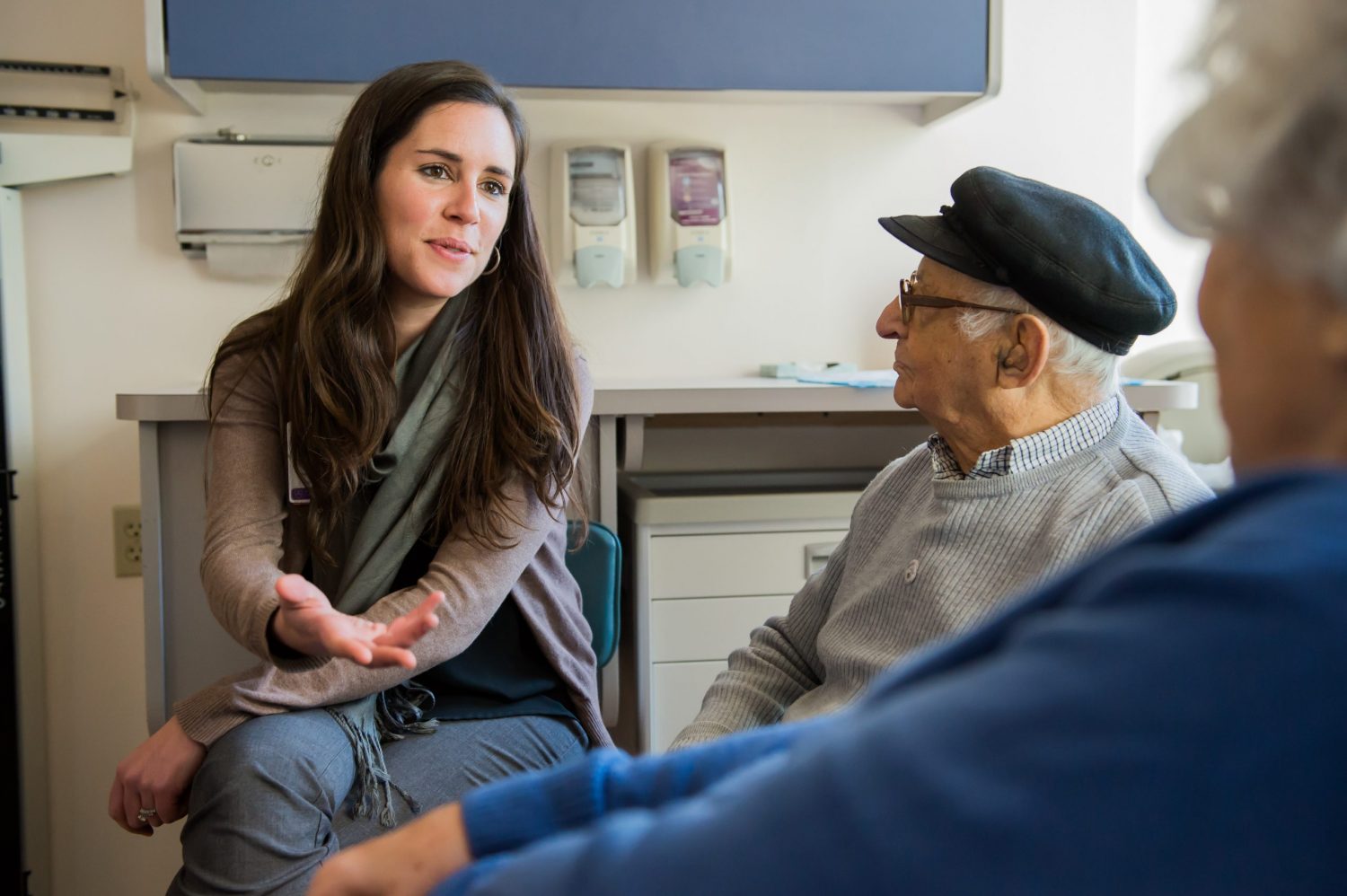Innovative Research
Dr. Ritchie, Director of the Dementia Care Collaborative, also engages in national research initiatives to improve dementia care, including those of the Society of Neuropalliative Care, where she serves on the Board; the Global Brain Health Institute; and Alzheimer’s Association International.
We support junior researchers who are conducting dementia research with mentorship and the opportunity to engage in our Dementia Care Collaborative programs. We are seeking funds to support training for geriatricians and palliative care physicians who want to improve memory care by conducting dementia research.

Research that is supported at Mass General Hospital
The CRESCENT Trial
The DCC has participated in the development of the CRESCENT Trial, recently funded by the National Institute on Aging IMPACT Collaboratory. The study, entitled “Implementation of the Care Ecosystem training model for individuals with dementia in a high risk, integrated care management program,” led by Dr. Brent Forester, seeks to adapt the effective Care Ecosystem Intervention (developed by Dr. Kate Possin, Sarah Dulaney, Dr. Christine Ritchie and others) to use by nurse care managers throughout the Mass General Brigham system. This study seeks to skill-up nurses in dementia care and caregiver support so that they can provide the best possible care to persons living with dementia and their caregivers.
The Impact Collaboratory
The IMbedded Pragmatic Alzheimer’s disease (AD) and AD Related Dementias (AD/ADRD) Clinical Trials (IMPACT) Collaboratory is a newly funded NIA-funded initiative that “seeks to build the nation’s capacity to conduct pragmatic clinical trials of interventions embedded within health care systems for people living with dementia and their care partners.” DCC Director Dr. Christine Ritchie serves on the IMPACT Collaboratory Steering Committee and as a member of the Patient and Caregiver Relevant Outcomes Core.
Increasing the Quality of Care of Persons Living with Dementia at Home
Dr. Ritchie’s research focuses on improving care for persons living with dementia at home. Her work, in collaboration with colleagues and mentees, has shown that dementia becomes increasingly invisible to health care practices and systems as persons living with dementia’s functional status declines. Their caregivers become increasingly isolated, often with little recourse for support other than the emergency room. To date, the preponderance of literature on persons with dementia emanates from studies conducted in nursing homes. Dr. Ritchie and her colleagues have been engaging in quantitative and qualitative studies, along with clinical trials to both better understand the advanced illness needs of community-dwelling persons with dementia and their care partners and what care delivery models improve their outcomes. Manuscripts reflective of this work include:
a. Harrison KL, Bull JH, Garrett SB, Bonsignore L, Bice T, Hanson LC, Ritchie CS. Community-Based Palliative Care Consultations: Comparing Dementia to Nondementia Serious Illnesses. J Palliat Med. 2020;10.1089/jpm.2019.0250.. PMID: 31971857
b. Hunt LJ, Ritchie CS, Cataldo JK, Patel K, Stephens CE, Smith AK. Pain and Emergency Department Use in the Last Month of Life Among Older Adults with Dementia. J Pain Symptom Manage. 2018 Dec;56(6):871-877.e7 PMID: 30223013
c. Harrison KL, Ritchie CS, Patel K, Hunt LJ, Covinsky KE, Yaffe K, Smith AK. Care Settings and Clinical Characteristics of Older Adults with Moderately Severe Dementia. J Am Geriatr Soc. 2019 Sep;67(9):1907-1912. doi: 10.1111/jgs.16054. Epub 2019 Aug 7. PMID:31389002
d. Possin KL, Merrilees JJ, Dulaney S, Bonasera SJ, Chiong W, Lee K, Hooper SM, Allen IE, Braley T, Bernstein A, Rosa TD, Harrison K, Begert-Hellings H, Kornak J, Kahn JG, Naasan G, Lanata S, Clark AM, Chodos A, Gearhart R, Ritchie C, Miller BL. Effect of Collaborative Dementia Care via Telephone and Internet on Quality of Life, Caregiver Well-being, and Health Care Use: The Care Ecosystem Randomized Clinical Trial. JAMA Intern Med. 2019 Sep 30;179(12):1658-1667 PMID: 31566651.